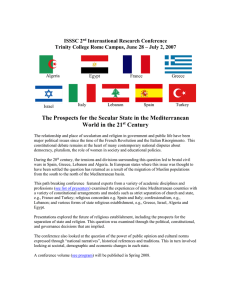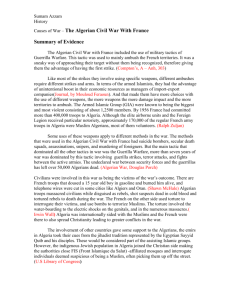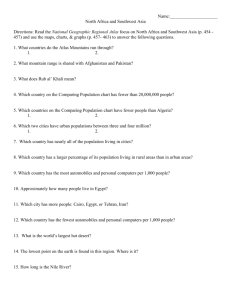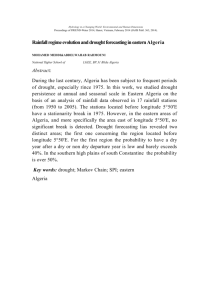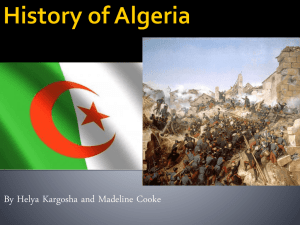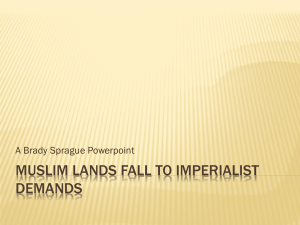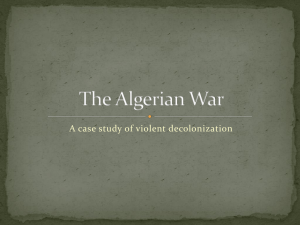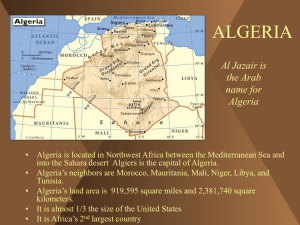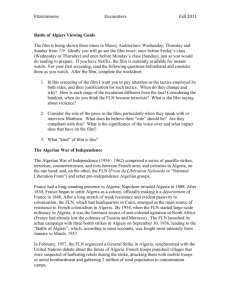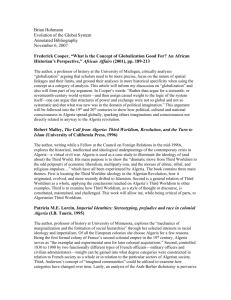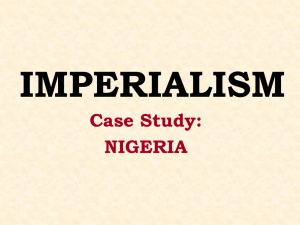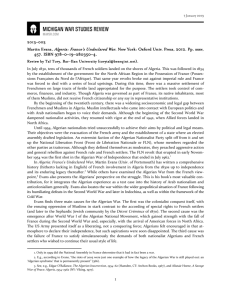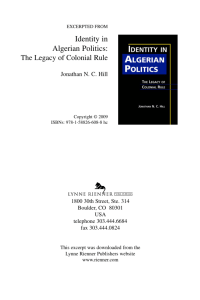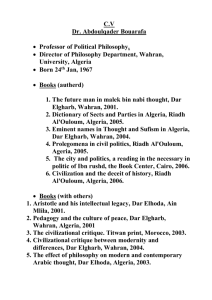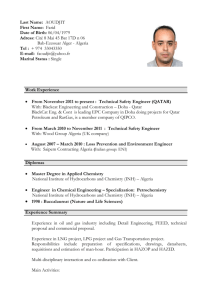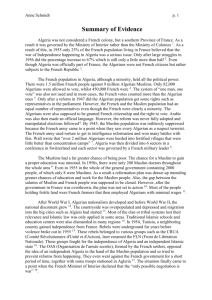Study guide # 6
advertisement
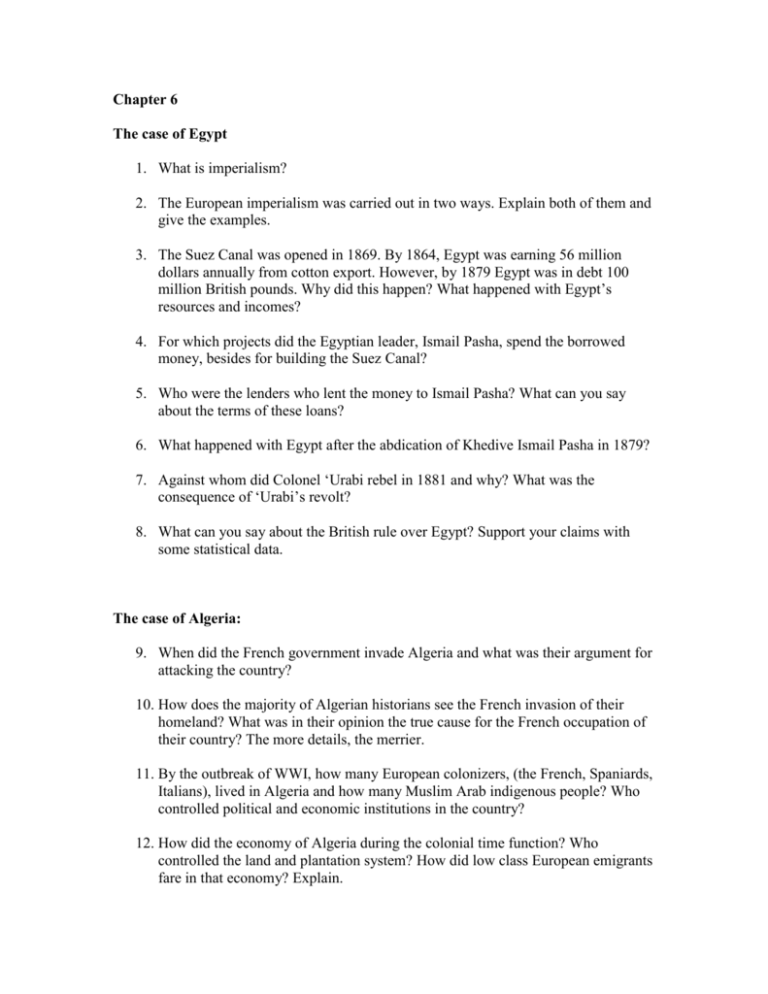
Chapter 6 The case of Egypt 1. What is imperialism? 2. The European imperialism was carried out in two ways. Explain both of them and give the examples. 3. The Suez Canal was opened in 1869. By 1864, Egypt was earning 56 million dollars annually from cotton export. However, by 1879 Egypt was in debt 100 million British pounds. Why did this happen? What happened with Egypt’s resources and incomes? 4. For which projects did the Egyptian leader, Ismail Pasha, spend the borrowed money, besides for building the Suez Canal? 5. Who were the lenders who lent the money to Ismail Pasha? What can you say about the terms of these loans? 6. What happened with Egypt after the abdication of Khedive Ismail Pasha in 1879? 7. Against whom did Colonel ‘Urabi rebel in 1881 and why? What was the consequence of ‘Urabi’s revolt? 8. What can you say about the British rule over Egypt? Support your claims with some statistical data. The case of Algeria: 9. When did the French government invade Algeria and what was their argument for attacking the country? 10. How does the majority of Algerian historians see the French invasion of their homeland? What was in their opinion the true cause for the French occupation of their country? The more details, the merrier. 11. By the outbreak of WWI, how many European colonizers, (the French, Spaniards, Italians), lived in Algeria and how many Muslim Arab indigenous people? Who controlled political and economic institutions in the country? 12. How did the economy of Algeria during the colonial time function? Who controlled the land and plantation system? How did low class European emigrants fare in that economy? Explain. 13. Who had access to the right of citizenship in the French Algeria and how did that legal decision of the French government of the time influence the political and social life of the country? What are some of its consequences? 14. During WWI, did the Algerians fight against or for the French government? Support your statement with some statistics. 15. How did the communist and socialist ideas come to Algeria? Explain. 16. How did Algeria obtain its independence? Who asked for Algerian independence in 1920’s? Who fought for it in 1950’s? How much did Algeria pay for its independence in terms of human sacrifices? Who rules the country now? 17. Why is it important to study Algerian history? 18. What do you know about Baron Edmund De Rotschild and why is he important in the history of the Middle East? The case of Mount Lebanon: 19. Why did the Western powers allegedly intervene into the politics of Mount Lebanon in the 19th century, according to their sources of the time? 20. What is a Berat and what privileges did its holders (Beratlis) have? 21. Why did the tensions between Muslims and non-Muslims arise in the 19th century in Lebanon? Economic and political reasons are mentioned usually. Can you elaborate on each type of reasons? 22. In 1861 the European powers imposed a solution on the Ottoman government requesting autonomy for Mount Lebanon. Eventually, Lebanon became a special administrative district within the Ottoman Empire, being governed under the system of proportional representation. Explain how this system functions. What are his influences on the current political life in Lebanon?
